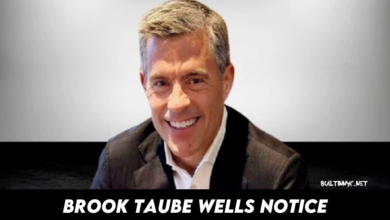The 72 Sold Lawsuit: Long-Lasting Implications

The 72 Sold lawsuit has generated considerable debate about transparency and ethics in real estate. Many homeowners have stated their disappointment that the company failed to disclose important details that caused financial harm due to lack of disclosure from them.
Particularly, this company stands accused of promising homeowners that they can sell their home within 72 hours, when in reality the process can often take much longer. If successful in court proceedings, this lawsuit could create important legal precedents and result in tighter regulations for real estate services that promise fast sales.
The Impact of the 72 Sold Lawsuit on Real Estate
The 72 Sold lawsuit has profound ramifications for the real estate industry. It emphasizes the significance of transparency during home sales and shows what happens when misleading advertising occurs; additionally, this case challenges quick sale promises or pressure tactics as valid approaches to sell homes faster.
Homeowners have filed complaints against 72 sold, alleging that it misrepresented the process of selling homes and failed to meet expectations. Alleged violations include misleading advertising, hidden fees and breach of contract.
No one knows for certain how this 72 sold lawsuit in the long run, but already it has initiated discussions regarding ethics and consumer protection practices. Furthermore, this could lead to more oversight on similar businesses with similar business models – potentially including more transparent breakdowns of commission rates and fees charged consumers.
Complaints for 72Sold
Multiple homeowners have filed complaints against 72 sold lawsuit, alleging they misrepresented its selling process. According to these homeowners, 72 Sold did not live up to its promise of quicker sales with higher prices; customers also claim that this company did not disclose all fees associated with its services.
72Sold’s lawsuits underscore the need for transparency and accountability within the real estate industry, where new technologies and business models continue to challenge traditional practices. Consumers must thoroughly read contracts before making decisions based on them.
Innovative real estate programs may present homeowners with exciting opportunities, but they must meet the same stringent standards of transparency and accountability as traditional methods or they risk legal or regulatory challenges.
Key Points of the 72 Sold Lawsuit
The 72 Sold lawsuit underlines the necessity of ethical and transparent real estate practices. Furthermore, it serves as a reminder to homeowners to thoroughly read over contract terms and conditions prior to allocating resources towards any program.
One of the primary claims in the lawsuit involves allegations of misleading advertising by 72 Sold, where homeowners allege it offered quick sale processes without fully disclosing risks and fees involved, leading to some financial surprises for some homeowners.
Additionally, homeowners allege that 72 sold lawsuit used pressure tactics to force them into accepting offers quickly – possibly violating consumer protection laws and leading to further scrutiny and regulation for fast sale programs like 72 Sold as well as damaging its reputation and any similar services. The lawsuit could have serious repercussions for 72 Sold and other similar companies operating fast sale real estate programs.
What is the Scandal About?
The 72 Sold lawsuit raises important issues regarding transparency and fairness within the real estate industry. It involves multiple stakeholders with various vested interests and perspectives; thus creating a legal challenge with wide-reaching consequences for real estate marketing practices nationwide.
72 sold lawsuit primary promise lies in its ability to sell homes quickly and for higher prices than traditional transactions, drawing in homeowners looking for quick home sales as well as real estate investors looking to maximize portfolio liquidity. This has attracted wide acclaim among those in both sectors.
However, some homeowners have lodged complaints against 72 Sold and accused them of deceptive advertising practices that failed to live up to their promises. Their allegations involve hidden fees and pressure tactics used on homeowners. As this case progresses, it highlights the necessity of transparency and ethical marketing practices in real estate sales and leasing transactions.
Misleading Advertising
One of the central allegations in the 72 Sold lawsuit focuses on deceptive advertising by 72 Sold. Their marketing materials allegedly make false or exaggerated claims regarding their success rates in selling homes quickly – leading many homeowners to be disappointed that selling took much longer than anticipated.
Homeowners also allege that the service provider was not open and transparent about fees associated with its service, such as being informed of any hidden costs or charges prior to signing on with them.
As a result, many homeowners have chosen traditional real estate agents over 72 Sold, harming its reputation and raising ethical questions about its novel business model.
The 72 sold lawsuit for the Real Estate Industry
The 72 sold lawsuit represents a significant legal battle with far-reaching implications on the real estate industry. This case emphasizes the significance of transparency and honesty when marketing services involving substantial financial transactions.
Homeowners should take great care to review contracts and ask questions before signing them or agreeing to services provided by third-party providers. Anyone experiencing misleading advertising, hidden fees, or pressure tactics should seek financial compensation as soon as possible.

Impact on Homeowners
72 sold lawsuit is currently facing a legal dispute that threatens its success, raising pertinent issues about transparency in real estate transactions and ethical responsibilities of home buying companies.
Consumer protection laws exist to safeguard individuals against deceptive business practices, and complaints against 72 Sold may lead to stricter regulations in their industry. Alleged misconduct includes overvaluations that led to unrealistic expectations and contract terms which were not made transparent.
New technology and disruptors in the real estate market may offer exciting opportunities to homeowners, yet must adhere to stringent ethical standards. Ultimately, the 72 Sold lawsuit serves as a lesson on truth in advertising and the significance of transparency during any transaction.
The 72 Sold Concept and Lawsuit Unveiled
The 72 sold lawsuit concept is an innovative solution designed to simplify real estate processes for both sellers and buyers, offering them more control over the process than is possible with traditional realtors or iBuyer platforms. As it has grown increasingly popular, its appeal has drawn investors while raising questions of ethical practices and consumer protection.
Some homeowners who enlisted this service have filed lawsuits alleging they were duped by misleading advertising and hidden fees, not receiving promised levels of transparency and service, and were not met their promises of fast sales. Should the plaintiffs win this suit, its implications for real estate could be huge; stricter regulations and increased scrutiny on services that promise fast sales might ensue; consumer trust in the market might deteriorate further and consumers become wary about unconventional selling techniques like flash sales.
The Allegations and Laws Protecting Clients
In addition to alleging false advertising, the 72 Sold lawsuit raises concerns over transparency in real estate transactions. Many homeowners have complained that 72 sold lawsuit marketing tactics overstated home sales speeds while failing to clearly disclose fees or other details; as a result they experienced delays and lower-than-expected offers.
72 Sold’s lack of transparency could expose clients to financial loss and is in violation of fair competition laws, should courts find these have been broken. Should this occur, courts could then force 72 Sold to change its business practices and more clearly communicate costs and terms to clients, ultimately protecting consumers while encouraging innovation within real estate industries – but at present the outcome of this case remains uncertain?
Who Can Help You in These Situations?
The allegations surrounding 72 sold lawsuit have caused considerable alarm among homeowners, real estate agents and other industry stakeholders. This lawsuit highlights the need for transparency and ethics when developing real estate marketing strategies.
72 sold lawsuit customers have reported numerous problems with its promises and delivery; their homes didn’t sell as quickly and they received offers lower than expected.
Consumers affected by such issues may see significant impacts to both their wallets and peace of mind as a result of settlements for such cases. Settlements in such cases may involve financial restitution and changes to business practices; additionally they can increase consumer trust in innovative real estate marketing strategies. It is therefore vital that before entering any new business model you seek professional advice to ensure a fair transaction that protects both your pocketbook and peace of mind.
Other similar lawsuits and market impact
While the outcome of the lawsuit remains to be seen, 72 sold lawsuit is likely to face financial penalties as a result of their misleading marketing. These could include fines and payments to homeowners as compensation payments; their reputation could also suffer irreparably making future client acquisition more challenging.
The 72 Sold lawsuit emphasizes the need for transparency and honesty in real estate transactions. Homeowners should carefully evaluate commission structures and listing prices when working with any real estate companies to avoid mislead or financial strain. Furthermore, this lawsuit could lead to additional regulations around how companies such as 72 Sold advertise their services – potentially providing clearer expectations regarding timelines and contract terms that benefit both buyers and sellers in the long run.



